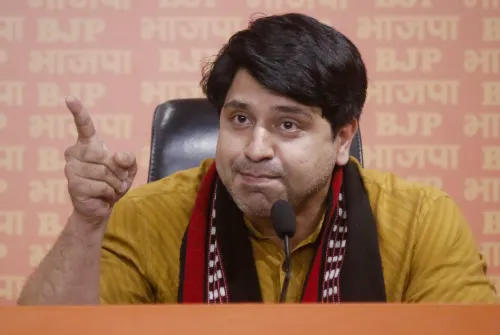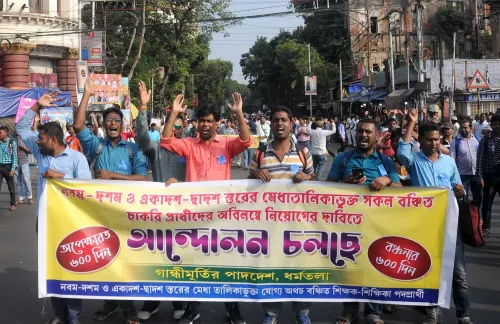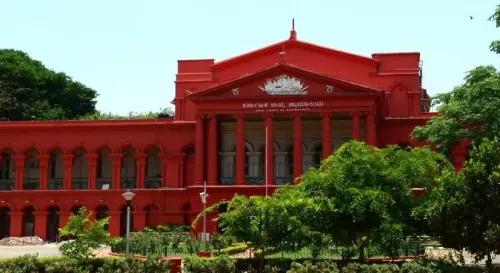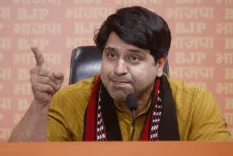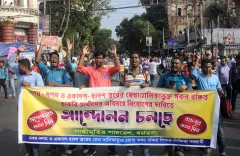How will the India-Central Asia Dialogue strengthen anti-terror partnerships?
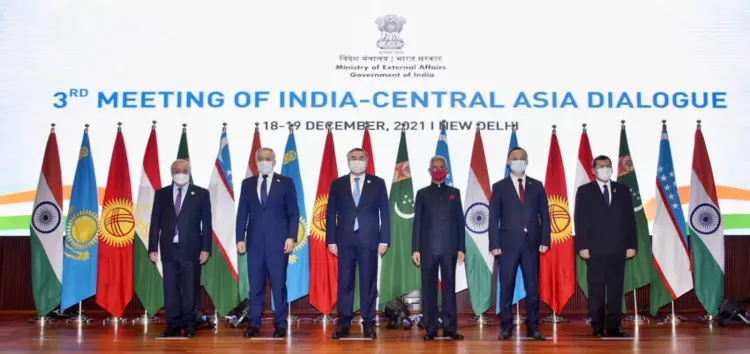
Synopsis
Key Takeaways
- Strengthening anti-terror partnerships is a primary focus.
- Collaboration in trade and technology is essential.
- The dialogue enhances India's influence in Central Asia.
- Regional security challenges are a major topic of discussion.
- Historical ties enrich diplomatic relations between India and CACs.
New Delhi, June 4 (NationPress) - On Thursday, Foreign Ministers from Kazakhstan, Turkmenistan, Uzbekistan, Kyrgyzstan, and Tajikistan will gather in New Delhi for the two-day 4th India-Central Asia Dialogue. This initiative underscores India’s commitment to strengthening anti-terror and de-radicalisation collaborations across the region.
The External Affairs Minister (EAM) S. Jaishankar will welcome the five Central Asian foreign ministers, including Bakhtiyor Saidov (Uzbekistan), Rashid Meredov (Turkmenistan), Zheenbek Kulubaev (Kyrgyzstan), Sirojiddin Muhriddin (Tajikistan), and Murat Nurtleu (Kazakhstan). This meeting comes in the wake of persistent incidents of cross-border terror, notably the tragic April 22 Pahalgam terror attack that claimed 26 innocent lives.
The visiting ministers will engage in the India-Central Asia Business Council meeting on Thursday, followed by the India-Central Asia Dialogue on Friday. Their visit will conclude with a meeting with Prime Minister Narendra Modi on the same evening.
Initiated in January 2019 in Samarkand, the India-Central Asia Dialogue acts as a vital platform for fortifying relations between India and Central Asia. The second meeting, held virtually in October 2020, concentrated on regional security, counter-terrorism, and infrastructure development. The third meeting occurred in New Delhi in December 2021 and focused on enhancing connectivity to strengthen ties further.
During the fourth dialogue on June 6, the ministers will deliberate on enhancing relations between India and Central Asian nations, emphasizing trade, connectivity, technology, and development cooperation. They will also share insights on regional security challenges and other significant global issues of mutual concern.
“India and Central Asia, within each other’s 'Extended Neighbourhood', share a strong and friendly diplomatic relationship, enriched by a long history of cultural and people-to-people exchanges. The inaugural India-Central Summit held virtually in January 2022 and the India-Central Asia Dialogue mechanism at the Foreign Ministers' level have significantly advanced this partnership,” stated the MEA.
The India-Central Asia Summit represents the highest level of engagement between the two regions. The first summit, conducted virtually in January 2022, was a crucial milestone in reinforcing India's connections with Central Asia. Chaired by Prime Minister Narendra Modi, it saw participation from the Presidents of Kazakhstan, Kyrgyzstan, Tajikistan, Turkmenistan, and Uzbekistan, culminating in the adoption of the 'Delhi Declaration', which institutionalized biennial summits and regular ministerial dialogues.
Except for Turkmenistan, all Central Asian Countries are also members of the SCO, Asia Cooperation Dialogue, and CICA. All the CACs support India's permanent membership in a reformed and expanded UN Security Council and generally back India's candidates in UN body elections.
India's historical and cultural ties with the Central Asian Countries (CACs) date back millennia. Buddhism spread from India through Tibet to Central Asia, establishing profound spiritual connections. Indian monks founded monasteries and translated texts across the region. Notable Buddhist sites like Termiz, Fayaz Tepe, Kara Tepe, and Adzhina Tepe reflect this influence.
Furthermore, historians such as Ibn Batuta and Al-Biruni recorded vibrant exchanges. Indian migrants introduced cotton, spices, and Buddhism to cultural hubs like Samarkand and Bukhara. Babur, the founder of the Mughal Empire, hailed from Ferghana Valley, Uzbekistan. The exchange of goods, people, ideas, traditions, and cuisines persisted between India and the CACs until the onset of colonialism in the 19th century.
“The India-Central Asia Dialogue symbolizes a shared interest between India and the Central Asian nations to establish a closer, more extensive, and robust partnership rooted in friendship, trust, and mutual understanding,” the MEA concluded.

